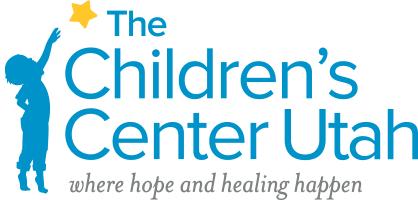Fostering a child’s mental health is just as important as making sure their physical health needs are met. In the same way a child benefits when caregivers make sure they are eating well, staying active, and brushing their teeth, a child’s mental health can benefit when caregivers take time to identify their feelings, cope with strong emotions, and build their sense of self.
Here are a few ways caregivers can help build mental health in childhood:
Find creative ways to talk about feelings
- Children learn about everyone’s feelings when caregivers label emotions for them. When a child is feeling mad, sad, happy, or excited, caregivers can label those feelings. Even better, caregivers can provide a reason why the child feels that way. This helps make connections between feelings and behavior. For example, instead of saying, “You look so sad right now,” a caregiver could say, “You’re feeling sad right now because your favorite toy broke.”
- Feelings can also be talked about during play or when watching movies or reading books. Talk about the feelings of dolls or puppets and use them to play out certain situations that make your child frustrated or upset. Caregivers and children can draw pictures together focusing on certain feelings. When watching a movie or reading a book, take time to focus on a character and explore how that character is feeling. To get started, watch a movie about feelings like, Inside Out or read books like, Today I Feel…, The Boy With Big Big Feelings, or The Color Monster.
- When children have big feelings, find ways to help them get those feelings out in appropriate ways. It is important for children to know that it is okay to feel all feelings, but that there are ways to express strong feelings that do not hurt others. For example, you can encourage a child feeling angry to rip or crumple up pieces of paper, build objects out of Play-Doh and smash them with their hands, or stomp their feet.
Nurture strong and supportive relationships with caregivers, siblings, and friends
- Find moments to spend one-on-one time with children. Let your child pick a game or activity and focus all of your attention on them. Comment on the choices they make (e.g. “You pushed the car all the way across the room!”) and praise them for doing things like sharing or being gentle with toys or play materials. Let your child know how much fun you’re having spending time with them.
- For young children, it may be hard for them to share toys or play cooperatively. Find activities your child can do with siblings or friends that don’t involve sharing, like making music, completing art projects, or playing with sand or water.
- Encourage your child to think about how others feel. Ask them to think about how something they did might make their friend feel. If your child notices someone feeling sad, talk about why that person might be feeling that way and what your child could do to help. For example, caregivers could say, “Joey feels sad because another boy stepped on his sand castle. Let’s see if he wants to build one with us.”
Build a child’s sense of self
- Encourage your child’s independence to complete tasks like solving puzzles, getting dressed, or solving conflicts on their own. Ask them to think about how they will do it and if they want any help. Praise their hard work, even if the outcome doesn’t turn out the way the child hoped.
- Talk with your child about the roles and responsibilities of each family member, including what rules your child is expected to follow. For example, you could say something like, “I go to work, your sister goes to school, and you go to preschool. These are places we go every day.” Or, “We eat dinner together every evening and we all have to stay seated at the table.”
- Have conversations with your child about their cultural identity. Make a family tree, read books, or listen to music that reflects your culture. Encourage your child to talk to friends about their culture by teaching them words in different languages or inviting them to cultural celebrations.
Together we can help children build strong minds, hearts, and bodies!
Jerrica Pitzen, M.S.
Family Therapist at The Children's Center Utah

